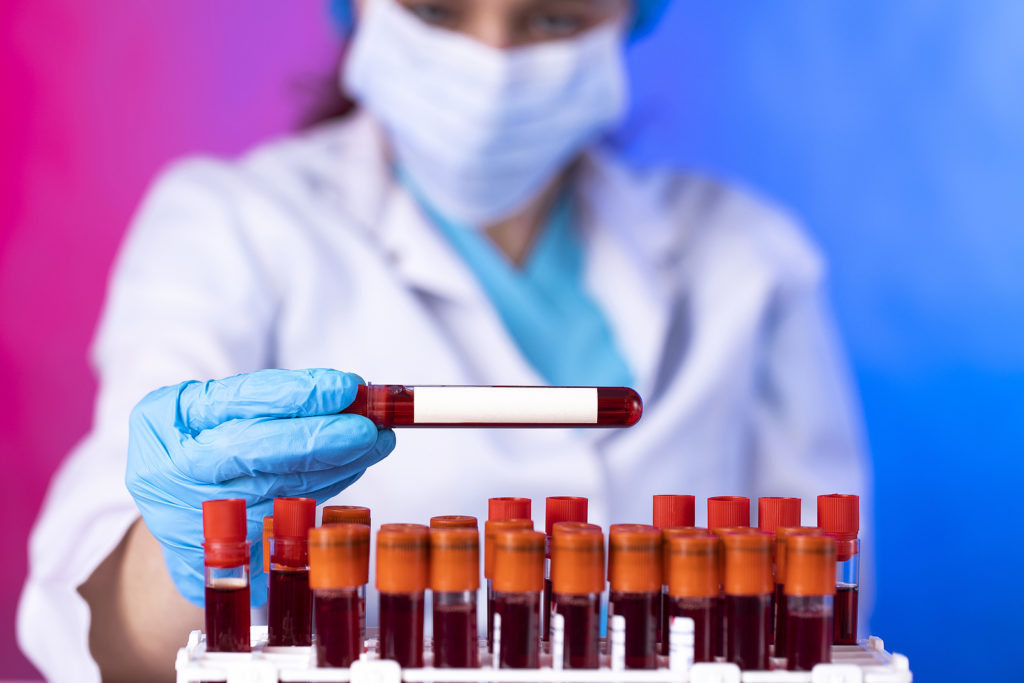Phlebotomy school Success: How to Thrive
Phlebotomy school Success: How to Thrive
Blog Article
The Course to Accreditation: Recognizing the Phlebotomy Educating Course Journey and Its Significance
As you consider the path to accreditation in phlebotomy, it is very important to comprehend the duty you'll play in healthcare. Your training will certainly cover essential skills, from blood collection strategies to patient interaction. Each component of the program prepares you for the challenges in advance. But just what does the journey involve, and why is qualification so important for your future career? Let's discover these questions additionally.

The Function of Phlebotomists in Healthcare
Phlebotomists play a necessary role in the medical care system, acting as the important web link in between people and important diagnostic testing. You'll carry out blood draws, making certain examples are gathered accurately and safely. Your experience helps in diagnosing clinical problems, monitoring health, and directing treatment decisions.
In your daily interactions, you'll need to establish trust with clients, making them feel comfortable throughout what may be a stressful experience. You are accountable for identifying and managing examples thoroughly to stop contamination or mistakes, which can influence examination outcomes.
Beyond this, you'll frequently function together with medical professionals and nurses, interacting essential info regarding people' conditions. By mastering your abilities, you add meaningfully to individual care, making you a crucial part of the medical team.
Overview of Phlebotomy Training Programs
When checking out phlebotomy training programs, you'll find various types designed to fit different schedules and learning designs. Each program helps you develop vital abilities like blood collection and individual communication. Understanding these alternatives is vital to choosing the best course for your job.
Kinds Of Educating Programs
Numerous kinds of training programs are offered for those looking to end up being skillful in phlebotomy. Furthermore, some medical facilities and clinics supply on-the-job training programs, supplying sensible experience while you find out. Whatever course you pick, each program aims to equip you with the required abilities for a successful phlebotomy job.

Secret Abilities Created
Understanding phlebotomy needs a collection of essential abilities that are developed through complete training programs. Additionally, interaction abilities are basic; you'll need to connect with individuals, explain treatments, and put them at convenience. Each of these skills is crucial for your success as a qualified phlebotomist, making you an important asset in any kind of medical care setup.
Key Elements of a Phlebotomy Training Course
In a phlebotomy program, you'll focus on crucial subjects that lay the foundation for your future career. You'll participate in hands-on training that permits you to use what you've discovered in real-world settings. Both the curriculum and functional experience are crucial for your success as a phlebotomist.
Core Educational Program Summary
While pursuing a phlebotomy training program, you'll come across a core curriculum created to outfit you with fundamental abilities and expertise. Phlebotomy Training Course. This educational program normally includes makeup and physiology, concentrating on the circulatory system and recognizing blood elements. You'll also learn more about different types of blood collection approaches, consisting of venipuncture and capillary leak methods
In addition, infection control and safety and security procedures are crucial elements, ensuring you know just how to preserve a sterilized atmosphere. You'll examine patient interaction, highlighting communication and compassion, which are crucial for easing individual stress and anxiety. Ethical and lawful factors to consider will be attended to, preparing you for real-world obligations. This foundational knowledge will certainly allow you to excel as a phlebotomist and supply quality treatment in medical setups.
Hands-On Training Experience
Getting hands-on experience is a crucial part of your phlebotomy training program. This practical training enables you to apply what you've found out in a real-world setting, improving your skills and confidence. You'll exercise venipuncture methods, discover how to handle different types of samplings, and get acquainted with the equipment used in the area. Under the advice of experienced trainers, you'll refine your abilities, guaranteeing you're planned for any type of situation you might deal with.
Additionally, you'll get the possibility to interact with individuals, which is important for creating your communication skills. This combination of technological proficiency and interpersonal abilities is essential for your success as a certified phlebotomist. Eventually, hands-on training is where theory fulfills practice, strengthening your knowledge and preparedness for accreditation.
Accreditation and Licensing Demands
Prior to you can start your job in phlebotomy, it is vital to comprehend the accreditation and licensing demands that vary by state. The majority of states need phlebotomists to hold a certification from an identified organization, such as the National Phlebotomy Organization or the American Society for Professional Pathology. These certifications typically entail passing an exam that examines your knowledge and skills in the field.
In enhancement to accreditation, some states have certain licensing requirements. You might need to finish a certain variety of hours in clinical practice, send proof of training, or undergo a background check. It is necessary to investigate your state's regulations to ensure you fulfill all necessary requirements.
Remaining educated about these needs not just assists you safeguard a placement yet additionally boosts your reputation as a professional. By satisfying these needs, you'll be well on your method to a successful occupation in phlebotomy.
Hands-On Training and Practical Experience
Hands-on training and practical experience are vital components of your phlebotomy education and learning, as they allow you to use theoretical understanding in real-world situations. During your training, you'll take part in supervised venipuncture, find out appropriate strategies, and become accustomed to different blood collection devices. This direct involvement is crucial for building your confidence and go to website refining your skills.
You'll work very closely with seasoned experts who can assist you with the subtleties of client communication and example handling. Each practice session not just enhances your understanding however also prepares you for the busy setting of medical care setups.
In addition, many programs incorporate medical turnings, enabling you to experience diverse setups, from medical facilities to outpatient clinics. This direct exposure helps you adapt to various obstacles and individual requirements, guaranteeing you're well-prepared for your future role. Embrace these possibilities, as they're vital to see this page coming to be an experienced and thoughtful phlebotomist.
Difficulties Faced Throughout Training
While gaining hands-on experience is vital, it's vital to acknowledge the challenges that can develop throughout your phlebotomy training. You could experience anxiety when doing procedures on real clients, specifically if you're new to the environment. The stress to obtain every little thing right can be frustrating. In addition, mastering the abilities needed for blood attracts takes method; you might fight with strategy at first.
Time monitoring can additionally be a difficulty, as balancing theory, functional sessions, and personal dedications can feel challenging. You might deal with varying finding out speeds amongst your peers, causing feelings of insecurity if you assume you're falling back. Adapting to the different personalities of instructors can be challenging, as each may have a special mentor design.
Recognizing these barriers at an early stage can prepare you for success and aid you develop durability throughout your training trip.
Job Opportunities After Qualification

As you get experience, you may even take into consideration concentrating on areas like pediatric or geriatric phlebotomy, dealing with particular individual requirements. Some phlebotomists select to progress their careers by becoming lab specialists or seeking more education in healthcare fields.
Additionally, your certification can lead to duties in training or overseeing new phlebotomists, allowing you to share your expertise. With the healthcare market continuously expanding, your abilities will constantly remain in need, leading the way for a secure and fulfilling career. Accept the opportunities awaiting you!
Regularly Asked Inquiries
What Is the Typical Duration of a Phlebotomy Educating Program?
Phlebotomy training programs usually last around 4 to eight weeks. You'll take part in hands-on practice, class instruction, and on the internet discovering. Finishing this training prepares you for accreditation and a rewarding job in medical care.
Are Online Phlebotomy Courses Available?
Yes, on the internet phlebotomy training courses are readily available. They supply adaptability and benefit, permitting you to research at your own pace. Simply confirm the program is approved to fulfill certification demands and get useful skills for your career.
Just How Much Does Phlebotomy Training Generally Expense?
Phlebotomy training typically sets you back in address between $700 and $2,500, depending upon the program and location. You need to take into consideration aspects like course size, consisted of materials, and hands-on experience when choosing the ideal training for you.
What Prevail Requirements for Phlebotomy Training?
Typical requirements for phlebotomy training commonly include a secondary school diploma or GED, booster shots, and a background check. Some programs may likewise require basic health care understanding or certifications, ensuring you're gotten ready for hands-on training.
Can I Function While Completing My Phlebotomy Training?
Yes, you can function while completing your phlebotomy training. Many trainees balance tasks with their studies, yet ensure to manage your time efficiently to guarantee you satisfy both work and training dedications successfully.
Report this page